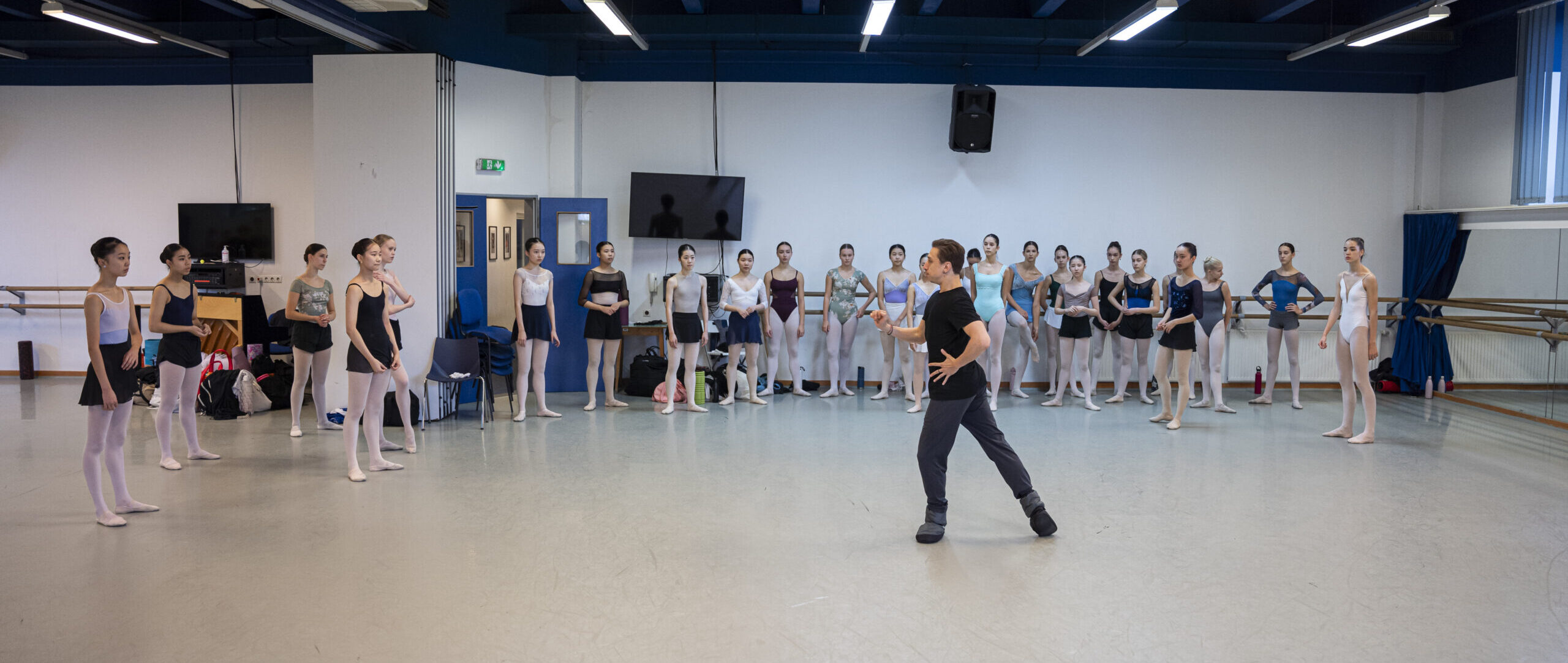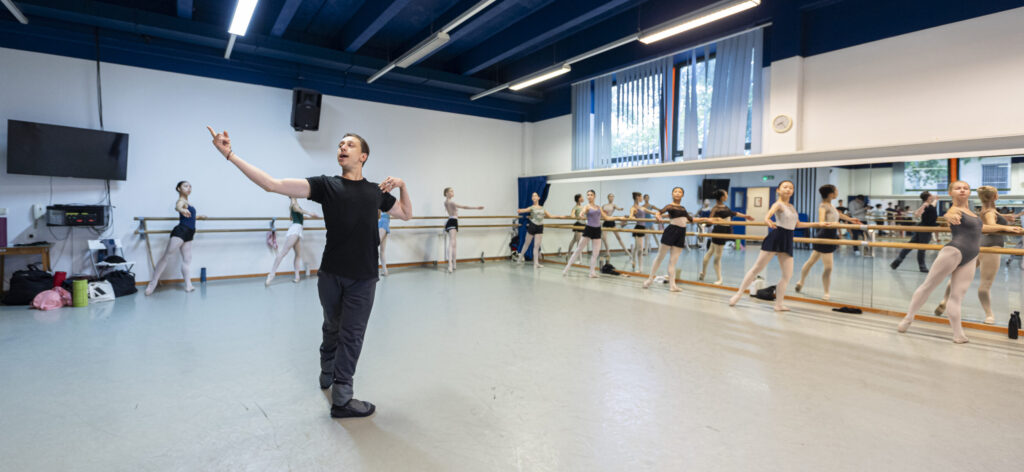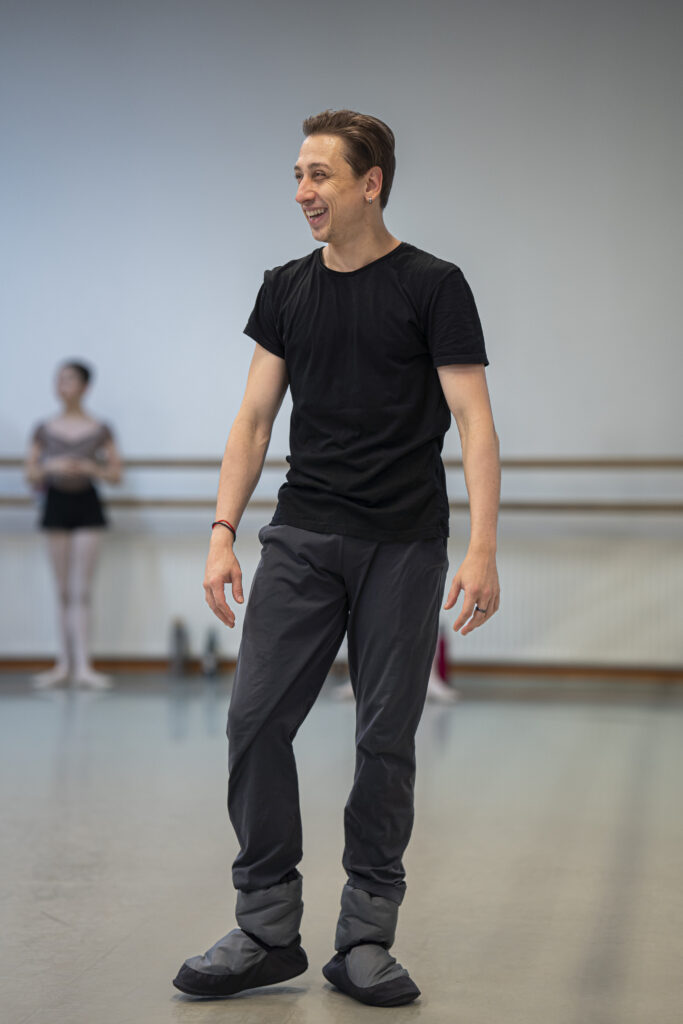
Denys Cherevychko, who worked with talented students of the classical ballet specialisation, took part in a panel discussion and a successful master class at the Hungarian Dance University on the first weekend of October. It is a tradition at the university to have internationally acknowledged artists pass on their valuable knowledge to young people.
Denys Cherevychko is from Ukraine, who started his studies at the Donetsk Ballet Academy, and at the age of 16 he was admitted to the Heinz Bosl Ballet Academy in Munich. He burst into the international dance scene like a comet. In 2006, he was accepted by the Vienna Staatsoper, which is an exceptional acknowledgement for a young dancer, but Cherevychko achieved much more than that – within a few years he became a principal dancer with the Vienna company and then its first private dancer, performing most of the most prominent roles in the men’s ballet repertoire. After winning numerous international prizes, he was awarded the gold medal at the Varna International Ballet Competition, officially securing his place among the greatest.
Nowadays he works as a freelancer. He is regularly invited to dance with other companies, especially in Italy, Russia and France as well as in the United States. When asked about this varied life, he said he enjoys freelancing as an artist.
“I really like working with different dancers, choreographers, opera houses and ballet masters, it’s incredibly interesting. I meet new people, I always get a different experience. It’s the constant school of dance where I’m constantly learning.”
The distinguished ballet artist was interviewed by Tamás Darai during the panel discussion, but he was also happy to answer our questions and told us that it was a great experience to work with the students of the university.
“It was my first time at the Hungarian University of Dance and I must admit that I really enjoyed working with them. It was fantastically productive. I like working with young people because what happened when I was a kid was very formative for me. By the way, it was my older sister that took me dancing. As a little brother, I waited for her in a studio until she finished her rehearsal. I watched people dancing and moving and thought, this is great, I want to try it! So that’s how it started, but then – and this is where the University comes in – along with several excellent masters, I had a brilliant teacher called Alexander Prokofiev, who trained excellent dancers. The time I spent with him was very formative for me, although unfortunately I only got to spend two years with him. So I love and respect the masters and I want to pass on the knowledge I have acquired so far.”

Photo by HYPE
Denys Cherevychko also spoke about the diversity of styles during his visit to Hungary and stressed that every country has a different school and style.
“I think it’s very exciting. My goal as a dancer is to learn as many styles as I can because I can develop. You always have to work on yourself, that’s what I tell my students. Gather as many impulses, techniques and experiences as you can, but build something of your own. Yes, that’s the goal!”

After several questions, the Ukrainian artist had another very interesting insight when we asked him if there was a favourite role he really likes to dance. He thought for a moment and then said that it was difficult to pick out a single favourite, he thought it was something else to talk about.
“In most cases, we talk about very different techniques for each role, so it’s hard to pick one. Each one is different. Different technique, different story and character. For me, the most important, my ‘favourite’ if you like, is the preparation and transformation that the character requires. But this requires many pieces that are challenging to dance. I really enjoy when you have to show the character in your own interpretation. And I think the most challenging and beautiful process in all of this is not being the same in different roles and bodies. That’s what I love the most.”
We thank Denys Cherevychko for being a guest of the Hungarian Dance University and for sharing his diverse knowledge and insights with the students of the university.


